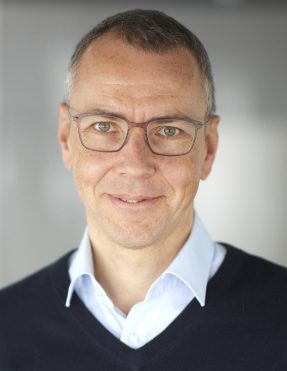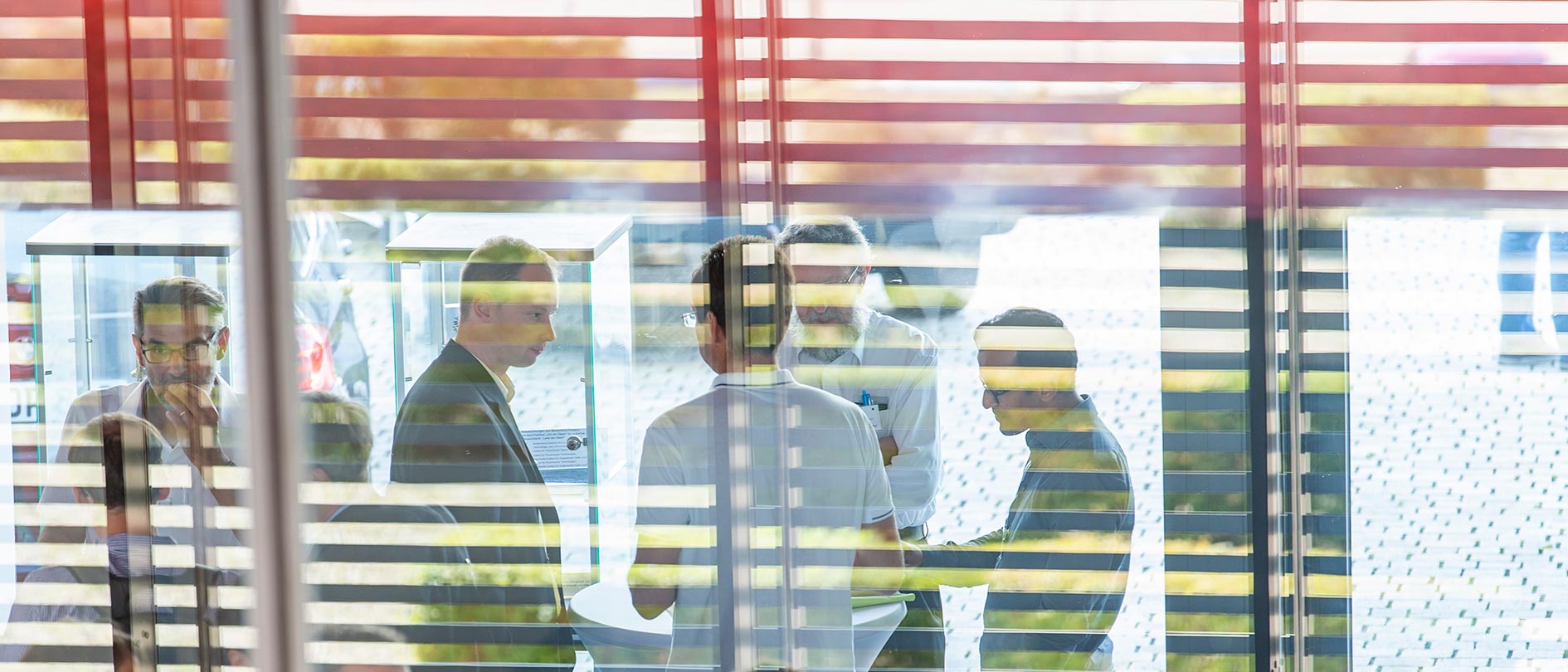News › ZEISS · Quantum physicist Prof. Dr. Immanuel Bloch wins the »ZEISS Research Award«
AWARD CEREMONY ON JUNE 26 AT THE GERMAN MUSEUM IN MUNICH
He is considered one of the leading scientists in the field of quantum physics: Prof. Dr. Immanuel Bloch has been awarded the »ZEISS Research Award« for his fundamental work in the field of experimental quantum simulation using ultracold atoms.
The company has been honoring outstanding research achievements in the fields of optics and photonics with this award since 1990. The award ceremony will take place on June 26 at the Deutsches Museum in Munich. Three young scientists from Germany, Austria and Switzerland will also be honored. They will receive the »Carl Zeiss Award for Young Researchers«.
World leader in quantum research

Every two years, ZEISS honors outstanding research achievements in the fields of optics and photonics with the »ZEISS Research Award.« This year, the award goes to Prof. Dr. Immanuel Bloch. Bloch, who holds a doctorate in physics, is scientific director at the Max Planck Institute of Quantum Optics in Garching and professor of experimental physics at Ludwig Maximilian University (LMU) in Munich, and is considered a pioneer of quantum research. With highly complex optical experiments at the interface of quantum optics, quantum information processing and solid-state physics, he has established a new field of research: the study of artificial quantum matter using ultracold atoms in artificial crystals of light, so-called optical lattices. His work succeeds in precisely measuring and controlling the interplay between atoms or small molecules with the help of ultracold quantum gases in order to better understand how quantum materials such as superconductors work. With this scientific work, Immanuel Bloch paved the way for the new interdisciplinary field of quantum simulation.
»ZEISS Research Award«: ZEISS promotes research and development
Making innovation possible at the technical frontier. ZEISS is also committed to this ambition. Not only as an optics company, but also as a technology group in particular. Science and research play an important role in this. This is why ZEISS honors special achievements in the fields of optics and photonics with the »ZEISS Research Award«. The award
was established back in 1990 as the »Carl Zeiss Research Award«. Since 2016, the »ZEISS Research Award« has been presented as its successor. Many of the 26 previous award winners have subsequently received other important awards – four of them even the Nobel Prize.
The following aspects in particular apply to the awarding of the »ZEISS Research Award«: The candidates have made outstanding achievements in the field of optics or photonics, are still active in research and their work has great potential for further knowledge and practical applications. If both criteria are met, the researchers are proposed to a jury of scientific experts from around the world. The chairman of this jury is Prof. Dr. Jürgen Mlynek from Humboldt University Berlin.
Carl Zeiss Award for Young Researchers
Dr. Simon Baier, Institute for Experimental Physics, University of Innsbruck, Austria.
Dr. Arindam Ghosh, Chair of Biotechnology and Biophysics, Julius Maximilian University of Würzburg, Germany.
Independent of the »ZEISS Research Award«, the »Carl Zeiss Award for Young Researchers« is awarded. This prize is offered by the Ernst Abbe Fund and is aimed specifically at young scientists. This year, three young talents will be honored:
Dr. Simon Baier from the University of Innsbruck, Dr. Arindam Ghosh from the Julius Maximilians University of Würzburg and Dr. Dasha Nelidova from the University of Basel, Dr. Dasha Nelidova, Institute of Molecular and Clinical Ophthalmology, Basel, Switzerland.
Baier is working on quantum mechanics at the Institute for Experimental Physics in Innsbruck, Austria. Ghosh does research in biotechnology and biophysics. And Nelidova is working on ophthalmology at the Institute of Molecular and Clinical Ophthalmology in Basel. Among other things, she has developed a novel method for restoring vision after blindness caused by age-related macular degeneration – the most common cause of blindness in industrialized countries.
Ceremony and award ceremony at the Deutsches Museum
The science awards ceremony will take place in a special setting this year. ZEISS has invited guests to the Deutsches Museum on June 26. Around 200 guests from the fields of research, science and technology are expected to attend the ceremony. It will also take place one day before the »Laser World of Photonics,« the world’s leading trade fair and congress for photonics components, systems and applications, which will be held in Munich from June 27 to 30.
In addition to the presentation of the awards, the highlight of the ZEISS event at the Deutsches Museum will be the keynote address by host and ZEISS CEO Dr. Karl Lamprecht, as well as speeches by jury chairman Prof. Dr. Jürgen Mlynek of Humboldt University Berlin and Prof. Dr. Christine Silberhorn, Institute for Photonic Quantum Systems (PhoQS) at the University of Paderborn.
